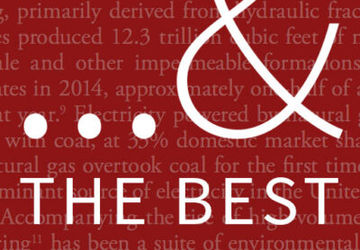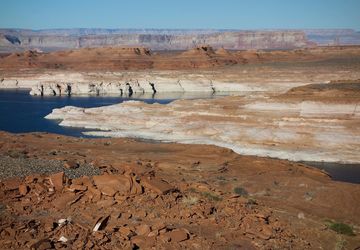With many students working, interning and traveling this summer, Stanford News Service asked faculty to reflect on what they did during summer breaks from college. Continue reading to learn about the summer David Kennedy, Lane Center Director Emeritus, spent in the Cascade Mountain foothills, east of Seattle.
It was the summer of 1962, between my junior and senior year as a history major at Stanford. There was no such thing as internships back then. We all worked during summers at whatever jobs we could find.
I started that summer as a tour guide at the Seattle World’s Fair. I drove a little golf cart around and gave the same pitch over and over again, all day long. By the second week, I was bored stiff. The pay wasn’t very good either.
A helpful uncle intervened to get me a job working for a flood-control district in the Snoqualmie River watershed, in the Cascade Mountain foothills east of Seattle. We cut brush and busted beaver dams and cleared sight lines through the forest for survey crews. For all practical purposes it was like working in a logging camp. The foremen didn’t care that I had no logging experience – they just wanted physically strong young men and I just wanted not to be driving a golf cart around all day.
And so, into the woods I went. On my first day they handed me a chainsaw and a big double-headed axe. They pointed to some trees marked with colored tape and told me to cut them down. No one bothered to explain how to do it. I had never cut down anything bigger than a Christmas tree. The 80-foot-tall trees I was facing now were another matter altogether.
It’s quite a feeling when a 10-ton tree hits the ground. It’s like a mini earthquake. You bounce, the ground bounces.
We also had to clear brush that we would burn in big fire pits, feeding the fire all day long. Our shirts only lasted a day or two – the sparks from the fires burned right through the fabric. Our chests and arms were covered in little burns.
Once in a while our machetes struck a hornet’s nest and we had to jump into the river to get clear of the hornets. Once I was stung so badly around my right ear that it swelled up like a cauliflower. A co-worker was stung so badly that he had to be taken away by ambulance and didn’t return to work for the rest of summer.
It was different from Stanford all right. It exposed me to ways of life and work that were galaxies distant from what I knew or what I was preparing for. That summer gave me a deep appreciation for what hard, physical labor is, what it means to work with one’s body for a living, and to do it under dangerous conditions. It introduced me to people I would never have met on campus. It was an early lesson in how vast and varied the world is and how fortunate was my place in it.
And I also learned how to fell some mighty big trees.
David M. Kennedy is the Donald J. McLachlan Professor of History, Emeritus, in the School of Humanities and Sciences.
As told to Melissa De Witte



